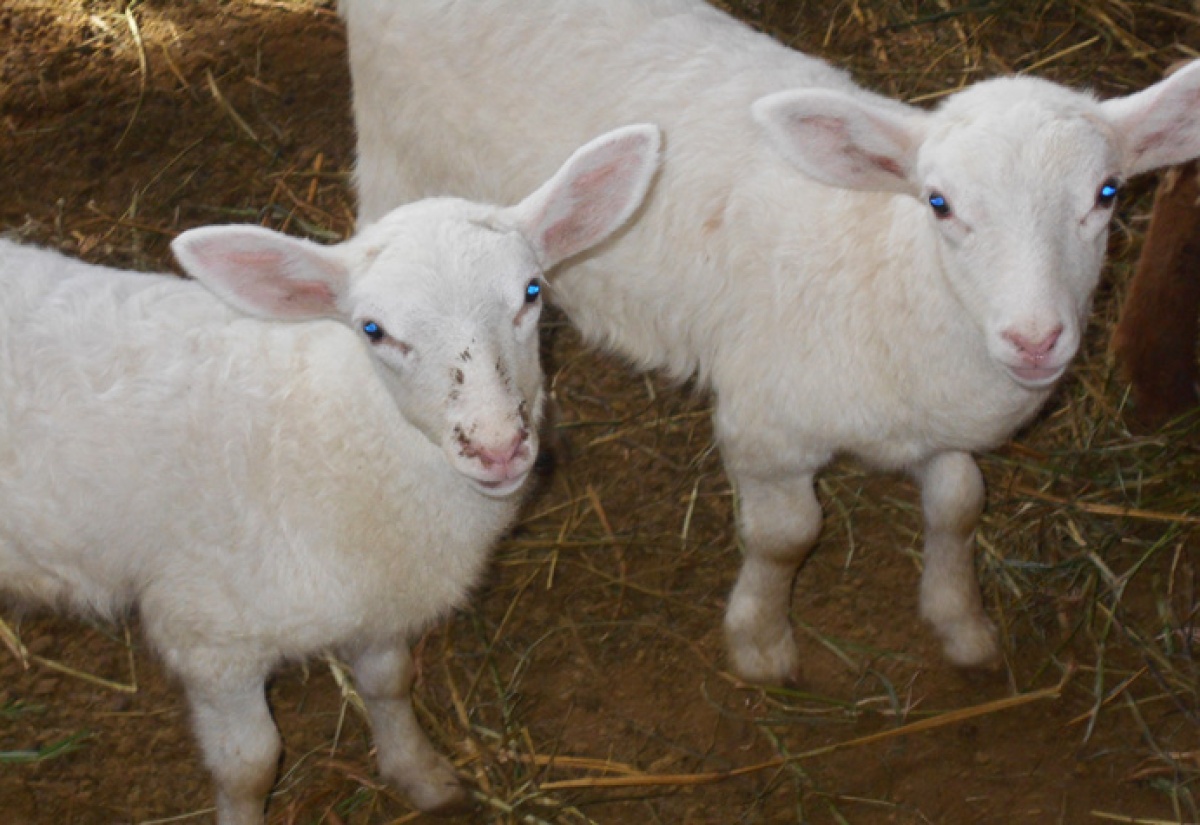Gov’t Boosting Quality and Productivity of Goat and Sheep Stock
By: , December 21, 2015The Key Point:
The Facts
- Annual import of mutton and chevon is estimated at over US$15 million.
- Under the Diversification of the Caribbean Livestock Sector through Production of Small Ruminants programme, focus is being placed on improving the production, productivity, and quality of small ruminants.
The Full Story
Jamaica is making progress in boosting the country’s stock of goat and sheep in order to meet local demand for mutton and reduce the import bill for the meat.
Annual import of mutton and chevon is estimated at over US$15 million.
Under the Diversification of the Caribbean Livestock Sector through Production of Small Ruminants programme, focus is being placed on improving the production, productivity, and quality of small ruminants.
This is through boosting breeding and dissemination of high quality stock, and providing training in animal processing and marketing
The project, which was launched in 2012, is funded by the Governments of Jamaica and Trinidad and Tobago; Common Fund for Commodities (CFC), which is a subcommittee within the Food and Agriculture Organization; Caribbean Agricultural Research and Development Institute (CARDI), as well the Caribbean Development Bank (CDB).
The objective is to enhance the income and food security of goat and sheep farmers and meat processors.
Deputy Research Director for the Livestock Research and Improvement Unit in the Ministry of Agriculture and Fisheries, Dwight Williams, tells JIS News that he is pleased with the progress of the project.
To date, under the programme, some 200 sheep embryos from the Dorper and Kata breeds have been imported; 100 farmers trained in animal husbandry and cluster group formation; and 3,000 plants distributed to 33 farmers to improve fodder volume.
“I am heartened at the progress we have been making and the responses from the farmers have always being good,” he says.
“We have been seeing marked improvement in the quality of goats and sheep in the region and this has resulted in improved pedigree of the animals,” Mr. Williams points out.
The main breeding site and research station for the project is the Hounslow Goat and Sheep Demonstration and Training Centre in St. Elizabeth.
The facility is equipped with the necessary infrastructure to facilitate embryo transfer, semen collection and artificial insemination. It is also used to train trainers and farmers.
An abattoir at the Bodles Research Station in St. Catherine has also been upgraded. At this facility, farmers are certified and licensed on how to slaughter animals through collaboration with the HEART Trust/NTA.
Other institutions involved in training and serving as breeding sites for the project are the College of Agriculture, Science and Education (CASE) in Portland, and the Knockalva and Dinthill Technical high schools in Hanover and St. Catherine, respectively.
The animals are given to these institutions to be used in educational programmes and for farmers to purchase and distribute.
Mr. Williams explains that embryo transfer is one of the methods used to improve the breeding stock. He informs that the embryos are imported from Canada and then implanted into surrogate does and ewes.
Artificial insemination is also employed, where semen from upgraded stock are implanted in local stock in an effort to maximise meat production and milk yield.
Mr. Williams informs that over 700,000 does and ewes are available for breeding purposes locally, but to satisfy the demand for chevon and mutton, over 2.5 million animals are needed.
He notes that because the price for goat and sheep meat is so attractive, farmers are selling the female animals rather than keeping them for breeding stock.
The programme has come in for high praises from Trelawny goat farmer Kenneth King, who tells JIS News that “this is undoubtedly an excellent programme.”
“It is programmes like this that Jamaica needs more of, as it addresses food security and the development of the gene pool of small ruminants such as goats and sheep,” he says.
“They have identified the problem and have put the necessary components together and the necessary organisations are working towards a common goal. If we continue along the present path through this project, we will become fully self-sufficient in small ruminant production,” Mr. King adds.
The programme, which was scheduled to be completed in December of this year, has been extended to June 2016.
At the end of the programme, some 30 persons would have been trained in proper slaughtering and marketing of small ruminants, some 250 breeding stock made available for distribution to farmers, and 15 trainers trained in various aspects of goat production.


